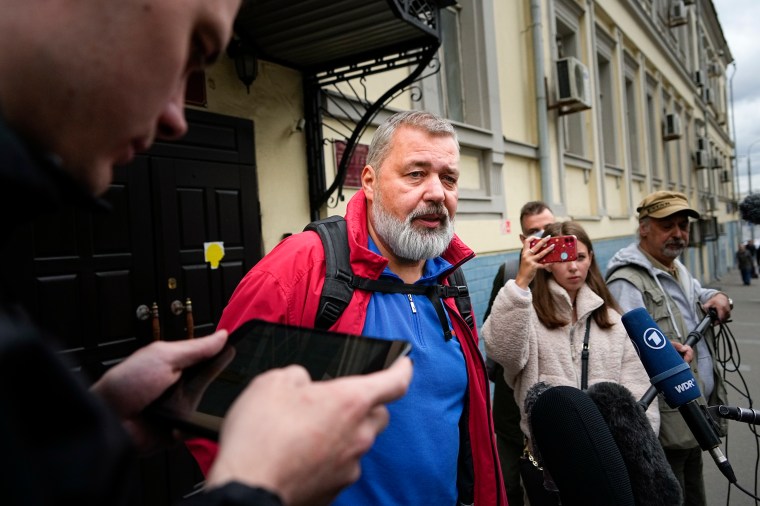Paris, September 6, 2022—Russian authorities should reverse a recent decision to suspend the printing license of the independent Novaya Gazeta newspaper and cease all efforts to censor the outlet and harass its staff, the Committee to Protect Journalists said Tuesday.
On Monday, September 5, a Moscow court granted a request by Russian state media regulator Roskomnadzor to revoke the newspaper’s print license, according to media reports and a statement by Novaya Gazeta. In its statement, the newspaper said it would appeal the decision.
The following day, the same court annulled the registration of the outlet’s affiliated magazine Novaya Rasskaz-Gazeta, news reports said.
Novaya Gazeta stopped printing in Russia when it suspended operations in the country on March 28, after receiving official warnings for allegedly failing to mark materials produced by so-called “foreign agents.” Monday’s ruling would bar the newspaper from being able to resume printing in the future, those reports said.
Without being registered as a media outlet, Novaya Rasskaz-Gazeta, which printed its first edition in July, will not be covered by Russia’s media legislation, which regulate how outlets can apply for accreditations, request information from the government, and perform other tasks.
“With their continued regulatory harassment of Novaya Gazeta and Novaya Rasskaz-Gazeta, Russian authorities are proving their determination to wipe out the country’s independent media outlets and put an end to free journalism in Russia,” said Carlos Martinez de la Serna, CPJ’s program director, in New York. “Authorities must immediately reverse the suspension of Novaya Gazeta’s print license, restore Novaya Rasskaz-Gazeta’s registration, and let all media outlets work freely.”
In suspending Novaya Gazeta’s print license, Roskomnadzor officials alleged that the newspaper failed to provide documents relating to a change of ownership in 2006, media reports said.
Novaya Gazeta chief editor Dmitry Muratov, a Nobel Peace laureate and 2007 winner of CPJ’s International Press Freedom Award, called the ruling “a political hit job, without the slightest legal basis,” according to Reuters.
“Today they killed the newspaper. Stole 30 years of life from its staff. Deprived its readers of their right to receive information,” Novaya Gazeta said in its statement.
Authorities annulled Novaya Rasskaz-Gazeta’s registration because the magazine had allegedly not published an issue for over a year, according to multiple media reports. The magazine was founded in 2009 and published its first issue on July 15, 2022, and is run by Novaya Gazeta staffers who remained in Russia, those reports said, adding that Roskomnadzor’s complaint against the outlet was filed on July 22.
A Novaya Rasskaz-Gazeta’s representative quoted by Novaya Gazeta said the request to invalidate its registration was “groundless.” CPJ could not immediately determine whether the magazine intended to appeal the ruling.
Since Novaya Gazeta was founded in 1993, at least six of its journalists and contributors have been killed in connection to their work, according to CPJ research.
On April 7, Novaya Gazeta journalists who fled Russia announced the creation of the Novaya Gazeta Europe newspaper.
The websites of both Novaya Gazeta Europe and Novaya Rasskaz-Gazeta were blocked by Roskomnadzor shortly after their creation, media reported. The Russian Supreme Court is scheduled to consider the cancellation of Novaya Gazeta website’s registration on September 15.
Separately, the Russian Ministry of Justice labeled Novaya Gazeta Europe Chief Editor Kiril Martynov as “media-foreign agent” on September 2, reports said. The Russian criminal code carries five-year prison terms for those who fail to comply with the requirements imposed on “foreign agents.”
CPJ emailed Roskomnadzor and the Basmanny Court in Moscow for comment, but did not receive any replies.
